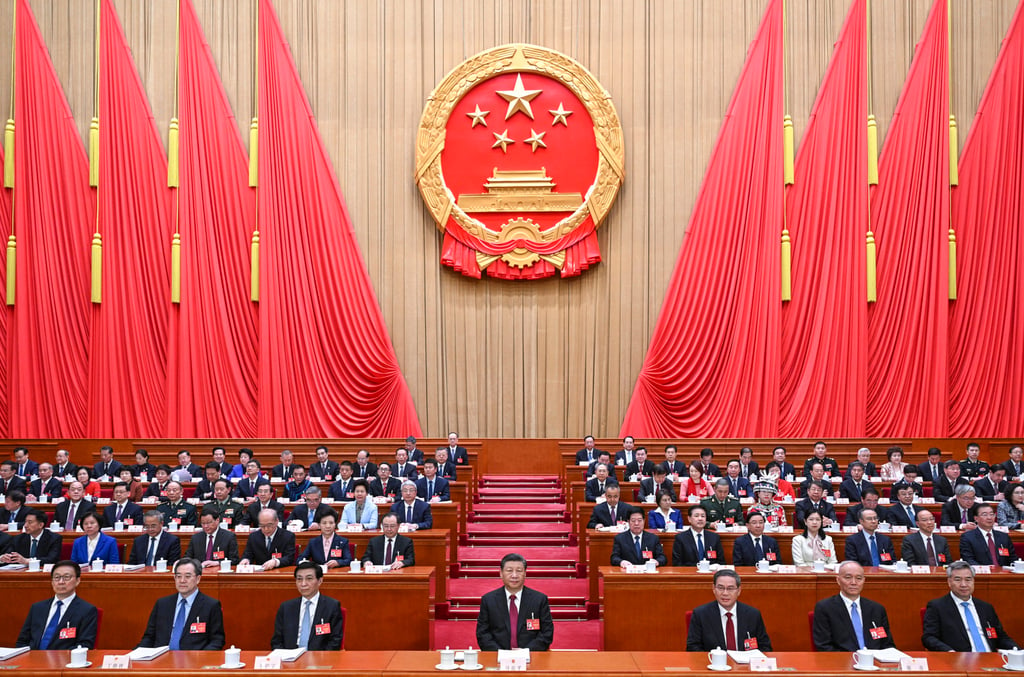China’s state buying may fade after sentiment improves as ‘hot money’ trickles into stock market
- China’s state-backed funds have bought at least US$57 billion of onshore stocks via exchange-traded funds tracking the underlying CSI 300 Index, according to UBS
- Jefferies warned companies may adopt ‘kitchen sinking’ strategy that may result in snowballing losses at the forthcoming earnings season.

Downwards pressure on China’s stocks may resume after the ongoing parliamentary meeting concludes, as state buying is set to taper off now that the key benchmark has scaled a psychologically important level, to allow market forces to operate freely, analysts say.
The national team, a term that refers to state-backed buyers, will probably slow its pace of purchases after the Shanghai Composite Index holds up above the 3,000-mark, with no surprises at the annual legislative National People’s Congress (NPC), analysts led by Chen Shujin at Jefferies wrote in a report on Tuesday.
Saxo Markets shares a similar view, saying that state buying of index-weighted companies ignored the weakness in medium and small-capitalisation stocks, a vast majority of which were in decline.
At the annual parliamentary meeting, China set a GDP growth target of around 5 per cent for 2024, in-line with market expectations but investors were concerned about the lack of drivers to boost demand and inflation, as the 3 per cent deficit target meant little room for stimulation in the fiscal policy.

“They had to do something to shore up the markets otherwise all confidence could have been lost,” said Nitin Dialdas, chief investment officer at Mandarin Capital Ventures. “Whether it has a long-term positive impact on the market performance itself we shall see, but for the short-term something has to be done. They need to find ways for the consumer to get some confidence back and not feel that they are losing income and money everywhere. It was just a stabilisation tool.”
